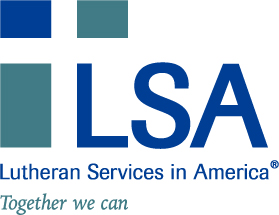Funded by federal and state dollars, the Farmers Market Nutrition Programs allow WIC and senior nutrition program participants to redeem their benefits at farmers markets throughout the state of Washington. In doing so, the use of farmers markets, farm stores, and community supported agriculture programs is expanded and the sale of Washington-grown fruits, vegetables, and herbs increases. This comprehensive model is a “win-win” for our state because it helps alleviate hunger and improves health for participating low-income Washingtonians, it supports Washington growers, and it helps boost our local economy and create jobs. In fact, nine out of every ten dollars invested in this program by the government or spent by a participating consumer stays in the local Washington economy.
Here in Washington, members of the Faith Action Network (a faith-inspired statewide partnership, which grew out of the former Lutheran Public Policy Office) have been leaders in the state capital advocating for expanding the program, securing the electronic benefits transfer card system in our farmers markets, and — in the past few years — working to preserve a budget line for it in the state budget. Lutherans and other people of faith throughout the state are educating their congregations on these programs, encouraging growers and WIC and senior beneficiaries to testify at committee hearings and meeting with legislators. Advocates for the programs also urge their legislators to visit one of the 180 local farmers markets in approximately 80 communities and see the program’s direct benefits (there are 180 such markets in Washington in about 80 cities/towns/neighborhoods).
Washington has a $32 billion two-year budget, which includes $100,000 for the Farmers Market Nutrition Programs. This relatively small sum in turn leverages $900,000 of federal funding for the programs. Like many states, Washington faces severe budgetary problems and important programs — like the Farmers Market Nutrition Programs — risk being cut. Lutheran advocates and other people of faith throughout Washington work to defend this hugely important and effective program from elimination. In essence, the grassroots voices — including those from our ELCA congregations — will be crucial in ensuring the continuity of this “win-win” program. Lutherans and other people of faith need to continue to speak out in protection of this program that helps struggling households with young children and seniors to purchase locally grown fruit and vegetables that, in turn, supports local growers and the local economy.
I give thanks to God for our church’s commitment to alleviating hunger through advocacy supported by ELCA World Hunger. In Washington state and in Washington, D.C., the decisions by lawmakers affect the vibrancy of our farms and communities, as well as the ability for everyone to obtain healthy food. Click here to learn more about how to urge our federal lawmakers for strong food and farm policy now.

![image_preview[2]](https://blogs.elca.org/advocacy/files/2012/09/image_preview2-225x300.jpg)
